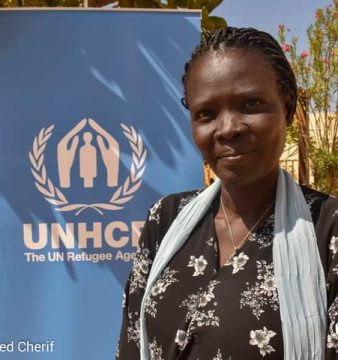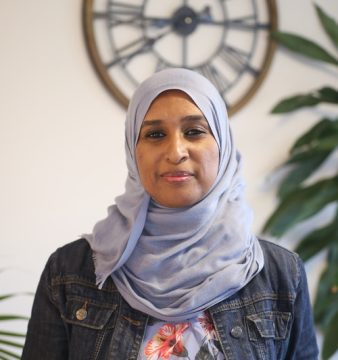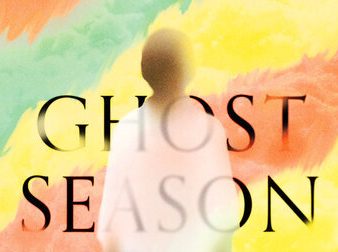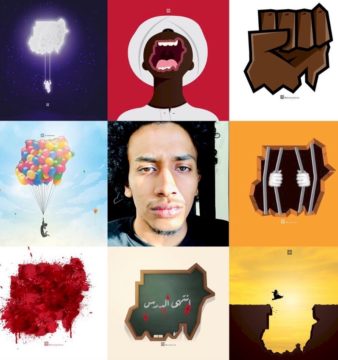Ak Dans: The Woke Comedian
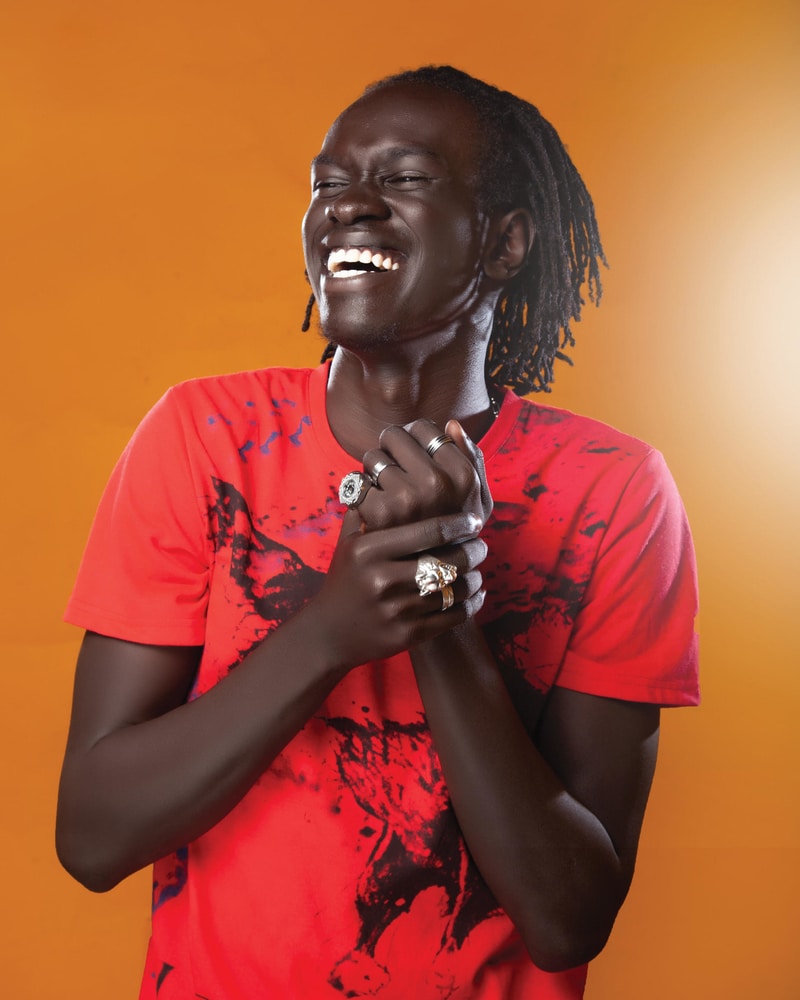
Hailing from South Sudan by way of the Kakuma Refugee Camp is 22-year-old stand-up comedian Akau Daniel Jambo Poundak, better known as Ak Dans or ‘The Woke Refugee’.
Ak was born in the Kakuma Refugee Camp in Kenya in 1997. His family was forced to flee the then war-torn South Sudan and found refuge in the UNHCR refugee camp, which is the largest in the world and home to at least 180,000 refugees from Sudan, South Sudan, Somalia, Ethiopia and other African countries. Celebrities such as Somali-American model Halima Aden, South Sudanese Olympic runner Rose Nathike Lokonyen, South Sudanese-American runner Lopez Lomong and many more originally come from the Kakuma Refugee Camp.
Turning stories of war, refugee camps and poverty into bright and positive ones, Ak now makes a living by bringing more laughter to the world. His comedy debut came in 2016 in South Sudan. He has since performed in Uganda, Kenya, Rwanda, South Africa, Botswana and other neighbouring countries. Ak has gotten to share the stage with some of Africa’s most popular comedians including Robby Collins, Long John, Basketmouth, Salvador, Churchil, Anne Kansiime and Loyiso Gola.
Ak is also an activist. He is an active member of Bear Burdens, a refugee innovation programme in Uganda; and a member of Anataban Arts Initiative in South Sudan, which uses the power of various arts such as poetry, music, drama and comedy to communicate messages affecting the youth and society.
During his comedy tour around Africa, Ak realised that people struggling in refugee camps need to hear his story, which encouraged him to establish a project called ‘The Woke Refugee Live in the Camps’ with a GoFundMe campaign to enable him perform in and bring laugher to various refugee camps in Africa such as the Bidi Bidi Camp and Rhino Camp in Uganda, and the Kakuma Refugee Camp.
500 Words Magazine interviews the 22-year-old rising comedian Ak Dans, The Woke Refugee, about his life in a refugee camp, making it out of Kakuma and embarking on a scaling career in stand-up comedy in Africa.
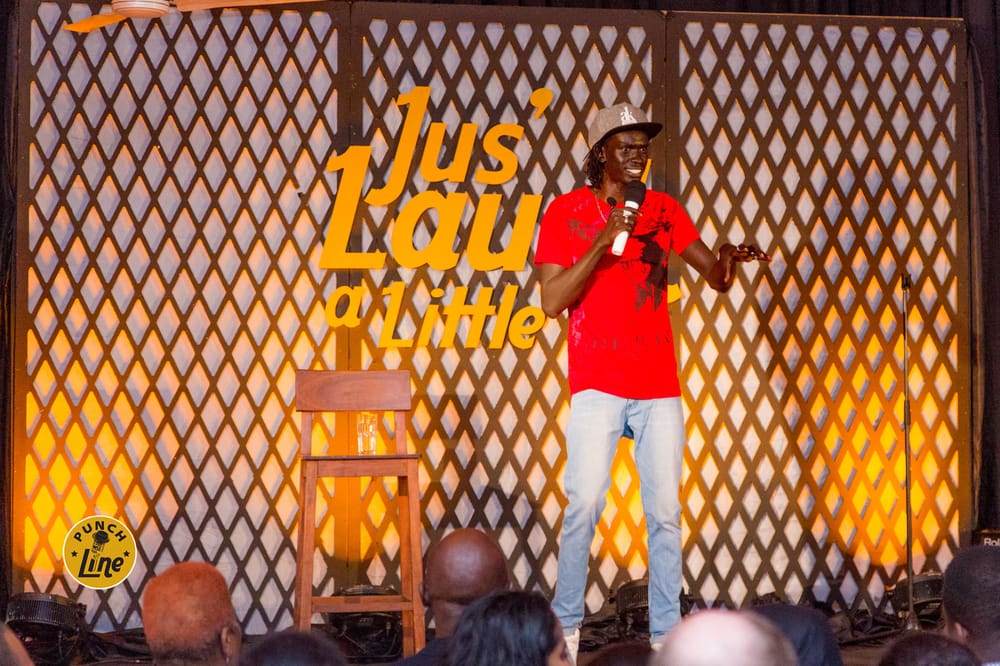
What inspired you to become a comedian?
Firstly, I would say that Trevor Noah was the greatest inspiration for me because of how much he has accomplished. I mean, he was from the Apartheid generation and like me was born and raised in a refugee camp. It’s from him I learnt that you can turn struggle into humour, and actually make money doing it. After this inspiration, I needed to be pushed and inspired every day and my friend Herbert Ebayo did that for me.
Are you or do you hope to make a living out of comedy?
Yes, I am currently making a living out of comedy and do not currently have another job. It’s not the most lucrative profession for me at the moment but I hope to be a lot more successful in future years. I want to be able to buy all the things I need, twice even just to prove I can afford them, like how I have two toothbrushes.
You address yourself as ‘The Woke Refugee’. What does that name entail?
The name was born after writing my first one hour comedy special set. I noticed the story was moving in a pattern from low to high and misery to happiness. The Woke Refugee is how I chose to look at my story from a refugee camp to a stage champ because it involved embracing all the turmoil and turning it into humour.
How was life as a South Sudanese refugee in the Kakuma Refugee Camp.
It was just normal because I was born there. I had nothing else to compare it to and as a young child, I thought the whole world lived like we did.
It was only when we moved to Nairobi for the first time that I realised how bad the circumstances I grew up in were. It was easier on my mum that way though. I never bothered her to buy me things that we couldn’t afford, because I had no idea of what those things were. The only things I was exposed to was peanut butter and BP-5 Compact Food that were supplied by the UN.
How does your identity – being a South Sudanese Refugee – play a role in what you do?
‘When I told him I was from South Sudan, he was shocked and asked, “South Sudan, you guys also laugh?” I was speechless. It’s hard to convey that South Sudan and its people are more than what you see on the news, but that’s also a positive thing. It means that everywhere I go and whenever I meet new people, I am bringing something new to the table.’
Being from a worn-torn country and a refugee camp means that a lot of people have stereotypes about who I am and what I’ve been through. I was performing at a show in South Africa two years ago and met a guy backstage. When I told him I was from South Sudan, he was shocked and asked, “South Sudan, you guys also laugh?” I was speechless. It’s hard to convey that South Sudan and its people are more than what you see on the news, but that’s also a positive thing. It means that everywhere I go and whenever I meet new people, I am bringing something new to the table. I’m changing perceptions and starting a dialogue and I think that’s a really important thing.

When did you return to South Sudan?
I travelled there for short periods of time from 2013 – 2015 just to process things like my passport because I wasn’t working in comedy then. I officially returned as a comedian in 2018 and then spent several months in Juba last year and sold out my ‘One Man’ show in August 2019.
What was your first show in South Sudan like and do you have any plans of performing in Sudan?
My first show in South Sudan was great. It was in Nyakuron Cultural Centre sometime in July 2018. If I’m being honest, I was a bit scared. I didn’t know if I would be understood as an English speaker given the preference for Arabic in Juba, a language I don’t speak. I had the same fears about Sudan, but I now, have plans of performing there one day. My friend, Omnia Shawkat, who is a Sudanese digital storyteller, made me realise that there are always people out there that can relate to you.
What have been some of your most memorable shows and why?
It’s hard to pick just one but I would say HICOFEST in Botswana in May 2019. I was performing with some other comedians from Zambia, Botswana, Lesotho and Zimbabwe to a packed audience. Being the last performer of the show, everyone was watching and waiting for me. I looked in the front row and saw about 11 South Sudanese with big smiles. They were students studying in Gaborone on a government sponsorship. We caught up after the show and talked about everything, my comedy and how the government could no longer pay for their schooling. It was an amazing feeling to feel so connected to people in a foreign country.
What challenges do you face as a stand-up comedian?
‘Artists play such a vital role in rebuilding our country. The politicians that started the war are paid every month so artists should be paid for the work they do even if it’s a peace concert.’
Challenges are everywhere. What makes us better is how we deal with them. My biggest challenge is one that most artists in South Sudan are facing after the war. A lot of events are run to promote peace. If something is done in the name of peace most event holders don’t want to pay their artists, even if they are charging for tickets. Artists play such a vital role in rebuilding our country. The politicians that started the war are paid every month so artists should be paid for the work they do even if it’s a peace concert.
Tell us more about ‘The Woke Refugee’ project and what inspired it.
After performing my one man show in Juba, I did a 20-day comedy tour in South Africa where I noticed that I wasn’t performing for the right people. The people that needed to hear my stories were still in the refugee camps.
My team and I will soon be touring the various refugee camps in East Africa with the aim of bringing joy, laughter and inspiration to the people there. We will also be donating material goods such as clothes, shoes and toys for the kids. You can support me through my GoFundMe campaign or find out more information of my website, www.akdanscomedy.com.
My dream is to take my show to refugee camps across the whole world and promote the idea that being a refugee doesn’t mean you can’t do anything you want in life.
Any upcoming projects/ shows we should know about?
I will be performing at Cape Town Comedy Club from 19 to 23 February 2020 and Fire & Ice Hotel on 28 February 2020 alongside some other top comedians like Simba (Zimbabwe), KG Mokgadi (South Africa), Long John (Zimbabwe) and Prince Mbaya (DRC).
I am always working on new projects. You can keep up to date via my website and social media.
Any additional comments?
I do urge both Sudanese and South Sudanese artists to work together because we have so much in common. Art knows no colour, religion or politics. Rather than letting our past divide us, this generation of educated artists have the power to build a better future.
For more on Ak Dans, follow him on social media: Instagram @ak_dans; Facebook @TheWokeRefugee; Twitter: @TheWokeRefugee; or visit his website www.akdanscomedy.com.

